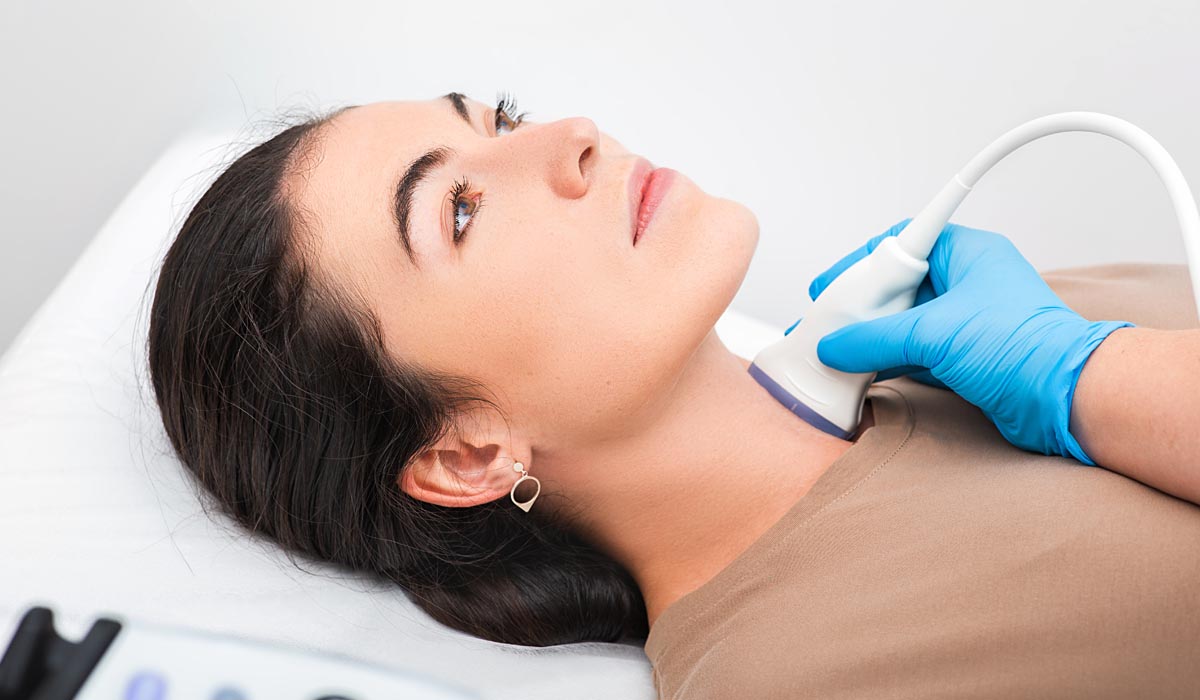✨Book online and enjoy a 5% discount on your first consultation
Home » Family Medicine Services » Thyroid Diseases

Medical Service Name – Thyroid Diseases
The thyroid gland is a small organ found in front of the neck bundled around the windpipe. It is responsible for producing and regulating hormones that control our body’s metabolic processes. A thyroid problem is a medical condition in which thyroid glands cannot make the appropriate amount of hormone.
Thyroid diseases can be minor, goiter (enlarged gland) to life intimidating ailments. Among many thyroid diseases, the most common thyroid disorder is the hormones’ abnormal secretion, which includes hypothyroidism and hyperthyroidism.
Types Of Thyroid Disorder
There are two types of this disorder. Hyperthyroidism occurs when the body produces an excessive amount of thyroid hormone. In contrast, a loss of thyroid hormone production characterizes hypothyroidism.
Possible Causes
Hyperthyroidism
Hypothyroidism
Risk Factors
Diabetes puts you at an increased likelihood of acquiring thyroid dysfunction than persons who don’t have it. Type 1 diabetes is an autoimmune condition. You are more prone to develop another autoimmune disorder if you already have one.
The risk is decreased for persons with type 2 diabetes, but it still exists. Thyroid symptoms are more likely to occur later in life if you have type 2 diabetes.
Sign & Symptoms
Hyperthyroidism
Hypothyroidism
Diagnosis
Thyroid disease can be challenging to identify at times since the symptoms are similar to those of other illnesses. When you’re pregnant or getting older, you can see signs identical to those you’d noticed with thyroid illness. Fortunately, some tests can assist in determining whether your symptoms are the result of a thyroid problem. These tests include the following:
Treatment Options at 7DMC
Our experts will enquire about your physical condition and medical history. Based on the provided information, our doctors can suggest the following tests:
These are just a few of the regular tests that our doctors may recommend. Our physicians can prescribe drugs to cure the condition or further tests such as calcitonin, and thyroid antibodies, based on the results of the standard tests. Thyroid problems can be fixed with suitable precautions and supervision from a specialist. Our specialists will assist you to the best of their abilities.
Most common symptoms are:
Having irregular menstrual cycles or having your menstrual cycle come to a halt.
All thyroid problems are treatable and result in normal thyroid function. To maintain a normal thyroid function, however, it typically necessitates the use of medication.
Even moderate hypothyroidism might raise the likelihood of weight gain and obesity. People suffering from the illness frequently describe puffy faces as well as an extra weight around the stomach or other parts of the body.
Near Dubai Miracle Garden,
Diamond Business centre A,
1st Floor,
Arjan, AI Barsha,
Dubai.
WhatsApp us